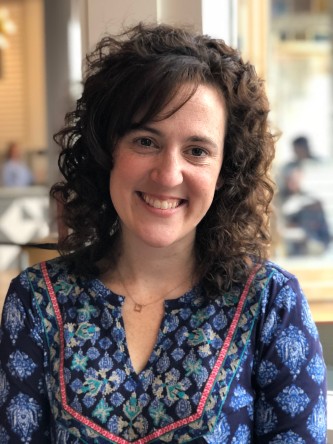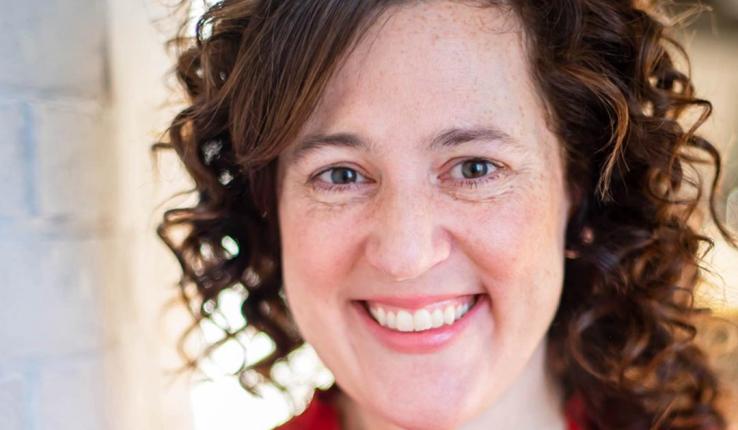As an educator and doctoral student, Megan Hauser has focused her efforts on equity issues. Now, as a participant in the Lehigh Valley Chamber of Commerce Women to Women Mentorship Program, she has another opportunity to develop her leadership skills and pursue her passion for educational equity.
Pursuing a Passion for Educational Equity
Doctoral student Megan Hauser works to incorporate leadership and equity into the classroom.

Megan Hauser pursues a doctoral degree in the College of Education's educational leadership program. Photo: Courtesy of Megan Hauser.
Hauser taught high school English for 12 years, always trying to bring learning beyond a conventional academic scope.
“My official title was English teacher but my driving passion and presence in the classroom was education for equity,” Hauser said. “I did whatever I could through my lessons in my classroom community to really develop equity skills in my students, alongside the reading and writing skills that I was teaching in the more traditional English role.”
While she enjoyed her role as a teacher, Hauser knew that she wanted to further her reach as an educator and find ways to enhance her presence as a leader. Lehigh’s doctoral program in educational leadership was a logical next step.
“I chose to come out of the classroom full-time and go into the educational leadership doctoral program, full-time, so that I could continue to serve students and serve educators with that equity mindset,” Hauser said.
Hauser instantly immersed herself at Lehigh, attending classes in addition to collaborating with other faculty members on four different research projects. One of these projects involves investigating the burnout phenomenon among teachers with minority status, and another looks at special education policy across the United States.
Hauser was thrilled to be accepted to the Lehigh Valley Chamber of Commerce Women to Women Mentoring Program. The program, she said, has a variety of focuses including communication, networking, giving and receiving feedback, and culture.
“What appeals to me about it...is that it’s a gathering space for women from all over the Lehigh Valley in a huge variety of leadership roles,” Hauser said. “It’s an opportunity for [myself and the other women] to really learn from [the mentors], but also to learn from each other.”
Hauser hopes to take what she learns from both programs to train teachers for a role in education with a focus on equity, and to attempt to create an education model for her community with that same principle in mind.
“I think it’s important for leadership to be something that can elevate voices that are maybe overlooked or not understood,” Hauser said. “And so I see it as like this shared space, where, when you have a leadership role, you need to constantly be looking for ways that other perspectives might be better accounted for and might be better included.”
Story by Tabitha Nowak '23




